During the 2022 African Investigative Journalism Conference (AIJC2022) held in Johannesburg from October 31 to November 2, participants from across Africa and outside expressed their concerns over persistent impunity on crimes committed against journalists. They called on solidarity and accountability.
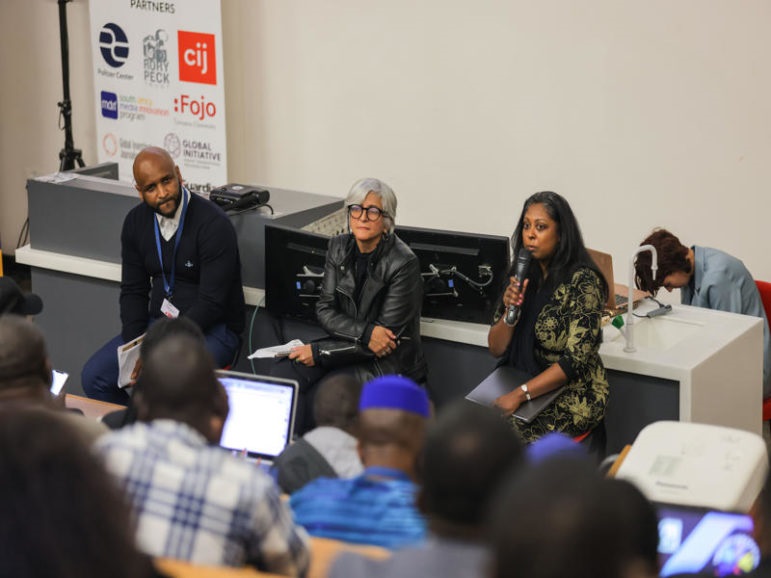
Angela Quintal (middle) moderated the Carlos Cardoso memorial lecture that was enhanced by Baba Hydara (left) and Penny Sukhraj (right)
“About 263 journalists have been murdered because of their work in the last decade. 51 have been in Africa. Attacks on the press are never justified. When they happen, there must be justice,” said Angela Quintal, Africa coordinator for the Committee to Protect Journalists (CPJ), as she read a declaration to call African governments to end crimes against journalists.
Adopted by acclamation by delegates to the AIJC2022, the declaration was read out during the Carlos Cardoso Memorial Lecture, on November 1, on the eve of the international day to end impunity for crimes against journalists.
According to the same declaration, impunity prevails in far too many cases where journalists are attacked for their work.
“When no one is held accountable for violence against the press, it sends a chilling message to others that may seek to bluntly censor reporting and deny the public access to information.”
The killing of journalists like Anton Hammerl shot by the Libyan government forces in 2011 and Deyda Hydara shot by members of then president Yahya Jammeh’s hit squad as he drove home from office in the Gambia in 2004, underscore the dangers faced by reporters across Africa, read the declaration.
Angela Quintal reminded that Somalia is the first country in the world with a high number of killed journalists.
Somali journalists are killed in the line of duty with tragic regularity, and in Ghana the killers of investigative journalist Ahmed Suale remain at large, four years after his murder, she added.
The CPJ Africa Coordinator regretted that Africa’s media have come to know impunity as the norm, not the exception.
“Recent research by the CPJ indicates that in over 80 percent of journalists murders, no one has been held to account. This is an alarming statistic.”
She called on authorities to make it a top priority to act and commit the political will necessary to combat impunity, not only for killings but other attacks on journalists as well.
Too often, governments claim to stand for press freedom, yet their allocation of resources to investigations of attacks on the media remains lacking, she said.
“Empty words will not fill the open wounds of a journalist beaten on the job or the empty seat on the kitchen table of a reporter gunned down in reprisal of their investigations.”
For her, it’s important for all journalists to be in solidarity with their colleagues who are killed and whose families long to see justice.
Concerns over solidarity and accountability
Carlos Cardoso Memorial Lecture was among many other interesting and cutting-edge sessions that featured in this year’s African Investigative Journalism Conference. In this lecture, participants discussed safety and security of investigative journalists as they paid tribute to Carlos Cardoso, a journalist killed in 2000 in Mozambique while investigating corruption.
This lecture was enhanced by two speakers: Baba Hydara, whose father, Deyda Hydara, managing editor of The Point newspaper, was murdered in 2004 in The Gambia; and Penny Sukhraj, whose husband, South African photojournalist Anton Hammerl, was killed by Muammar Gaddafi troops while covering the Libyan civil war in 2011.
Baba Hydara recalled the circumstances in which his father was killed: “4 years after the assassination of Carlos Cardoso, my father was also killed by the dictatorial regime of Yahya Jammeh in the Gambia following his criticism on rules of the government which aimed at intimidating and harassing journalists.”
He deplored that Yahya Jammeh has not yet been held to account over Dayda Hydara’s assassination.
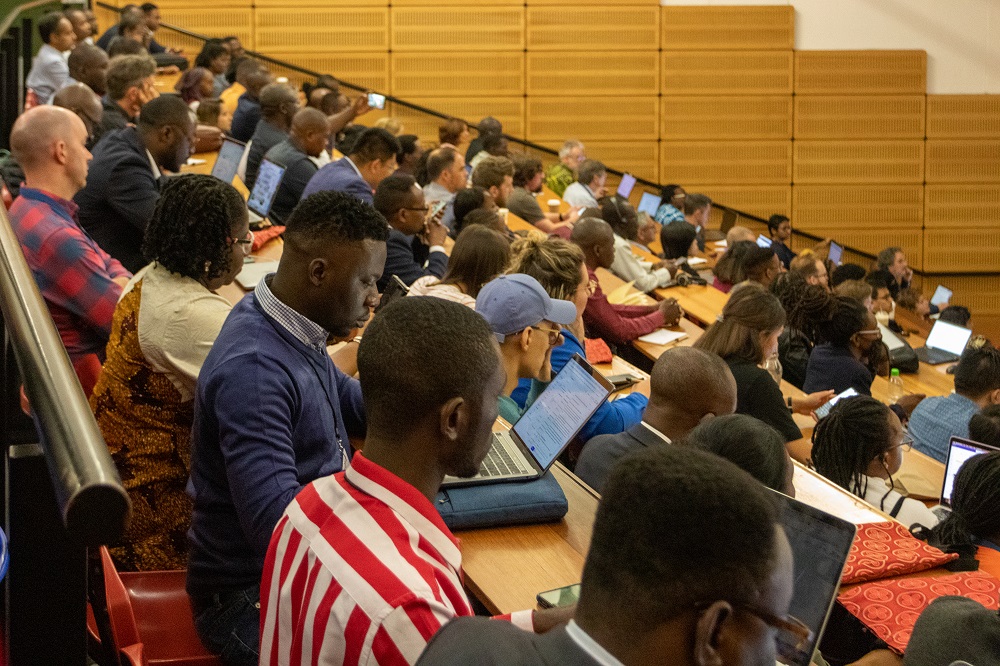
Participants in the AIJC 2022
According to him, it is unfortunate that such rules are still in effect in The Gambia making it very difficult for the media to operate in the country.
Among those rules, he mentioned the increase of the newspaper registration fees for newspapers to open and operate in the country. For him, this makes it impossible for media owners to fund their newspapers: “Without registration, they can’t operate.”
“Our family received no support. But why should you care? It matters because what happened to Anton could happen to anyone of you,” said Penny Sukhraj, an online news editor with Dow Jones.
Any of you could find yourselves in trouble working abroad and then being sent to cover an assignment even further afield. The case of Anton is emblematic of what could happen to any journalist working and living abroad, she added.
Some investigative journalists who attended this lecture raised their concerns over safety.
“CPJ has often advocated for us, but we don’t feel safe,” said Haruna Muhammed, editor at Wikki Times, a Nigerian online newspaper. Because of threats, Nigerian investigative journalists sometimes have to relocate to different places, he added.
“What are we doing as journalists to defend press?” asked Benjamin Tetteh, Ghanaian journalist.
He called on journalists to use their platforms to speak for each other.
We would make more of this voice. We would make a campaign, speak for ourselves, carry the bag on our shoulders. We shouldn’t wait for others to speak for us, he also said.
“I commend the work that investigative journalists do on a daily basis. Carlos remains a hero of press freedom in Africa. Like him, many other journalists have paid the ultimate price for standing for truth,” said Anthon Harber, the AIJC 2022 convenor.
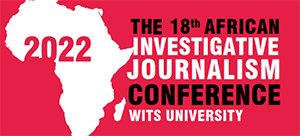
AIJC2022 logo
The 2022 African Investigative Journalism conference had more than 80 sessions and featured 140 speakers. Held at the University of the Witwatersrand in Johannesburg, South Africa, the conference drew 375 participants from 51 countries.
Two workshops were held before the conference: a three-day investigative journalism masterclass co-hosted with Norwegian non-profit Stiftelsen for en Kritisk og Undersøkende Presse (SKUP) and a one-day workshop on investigating environmental crime, co-hosted by Global Investigative Journalism Network (GIJN), the Global Initiative Against Transnational Organized Crime (GI-TOC), and South Africa’s Oxpeckers Centre for Environmental Investigative Journalism.
In the closing session, Sofia Hultqvist, regional manager for Africa at the Fojo Media Institute, a Swedish media development organization that will co-host GIJC23; and Maxime Domegni, GIJN’s francophone Africa editor, invited African investigative journalists to the Global Investigative Journalism Conference (GIJC23) that will be held in September 2023 in the city of Gothenburg, Sweden.
“We are hoping for 2,000 journalists from 140 countries around the world. I really hope we will have a big delegation from Africa. We hope to see many of you there,” said Sofia Hultqvist.


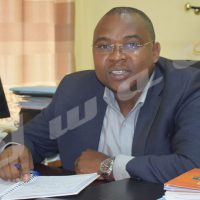
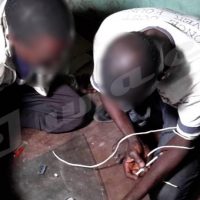












 IWACU Open Data
IWACU Open Data

